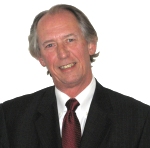Updated
Polisario Human Rights: A Damning Silence – Robert M. Holley
.
* Update: Uprising in Polisario-run Camps near Tindouf, Algeria *
.

Robert M. Holley, Senior Policy Adviser, MACP
Robert M. Holley, MACP
February 16, 2014
I was back in the Sahara this week, in part to follow up on the blog I posted here two weeks ago about the uprising and demonstrations in the Polisario-controlled refugee camps in southern Algeria. The demonstrations continue, demanding an end to Polisario abuses and the right to speak out and freely organize associations that express the growing discontent of the refugee population there.
The repression also continues and ten people have been arrested since I last reported on this on-going tragedy, three of them so badly beaten that they had to be taken to the hospital in Tindouf. The camps also remain locked down with heavy security around and inside the camps and a curfew imposed.
Algeria continues to deny permission for independent international news reporters to visit the region. Nevertheless, I found it easy enough to acquire information about what was happening on the ground by talking to friends in southern Morocco who still have daily phone contact with their relatives and friends in the refugee camps.
Here are the names of seven of the demonstrators currently in custody for trying to express their discontent: Sadam Hamadi, Hefedallah Lemheidi, Eli Ghali, Walid el Farissi, Ami Oumar, Abdellah Bilal and El Mahfoud Hedga.
Here are two of the three that were taken to the hospital after being beaten by Polsario security forces: Sidi Ahmen Ould Moulaye and Ely and Brahim Ould Nema.
A third demonstrator has reportedly been released from the hospital, but remains in Polisario custody. I do not yet have that name, but expect it in the next day or so.
While I was in southern Morocco interviewing recently escaped refugees who had returned home and talking with friends about what was happening in the camps, Human Rights Watch also had its representative in town. However, despite the fact that these demonstrations, arrests, beatings and repression have been going on for nearly two weeks in the camps in Algeria, following the killings I wrote about in my previous blog on this subject, neither Human Rights Watch nor the Robert F. Kennedy Foundation have mentioned a word about these abuses of the human rights of the Sahrawi people that both organizations claim to care so much about. Their silence on these events is damning, but shouts volumes about their selective agenda on human rights in Western Sahara. I say, shame on them!
Instead, Human Rights watch took the opportunity of their visit to Morocco to release a new report about immigration issues there. Highly critical, of course, despite the fact that Morocco is the only country in the MENA region actively and very publicly putting in place a system to regularize the status of illegal immigrants in the country — something we seem unable to do here at home and something no other country in the region seems to have the least interest in doing.
And, of course, Human Rights Watch had nothing to say about Algeria’s recent expulsion of dozens of elderly, women and children refugees from Syria by forcing them over the border into Morocco. Again, a dubious, highly selective and curious agenda seems at work here.
While Human Rights Watch was busily attempting to focus attention anywhere but the refugee camps, the Robert F. Kennedy Foundation, just as silent about events in Tindouf, was organizing another meeting of pro-Polisario activists in Paris, unhappy with the French position supporting Morocco’s initiative to comply with the UN Security Council’s request to find a political solution to the problem in Western Sahara through a proposal to grant the region a broad autonomy under continued Moroccan sovereignty. This initiative is also very clearly supported by both the Obama Administration and the US Congress.
In Paris, the Kennedy Foundation was also again pushing its increasingly disingenuous claim to be concerned about Sahrawi human rights, except if the Sahrawis in question happened to be living in the Algerian and Polisario-controlled refugee camps where they, like Human Rights Watch, seem never to notice anything might be amiss.
The State Department’s annual report to Congress on human rights is due to be released in the coming weeks. I will be looking again to see if they continue to completely ignore issues related to the human rights of the refugees in those camps in their report on Western Sahara, as they have done for the last three years (see my previous blogs on this subject).
It’s about time that some currently serving Foreign Service Officers pay as much attention to this subject as at least one retired FSO does. Seems to me that the credibility, objectivity, and professional reputations of both official and non-official human rights watch dogs are on the line concerning the issue of human rights in Western Sahara.
For those offering very public (and in my view highly questionable) advice on the subject, perhaps a bit more coherence, objectivity and even-handedness is in order these days to accompany some of the one-sided advice and reporting being offered.
Stay tuned.
Robert M. Holley is Senior Policy Advisor for the Moroccan American Center for Policy, MACP